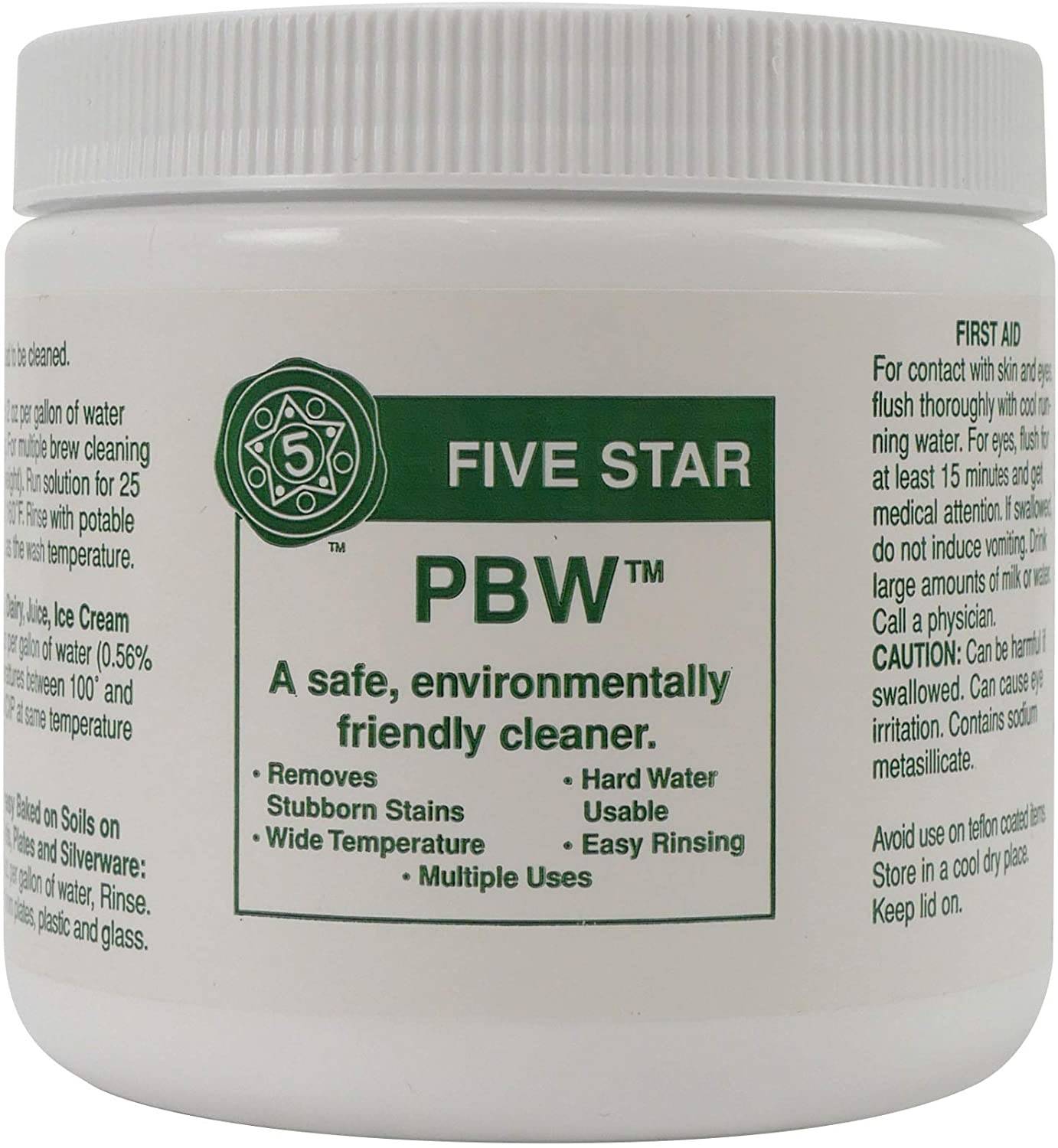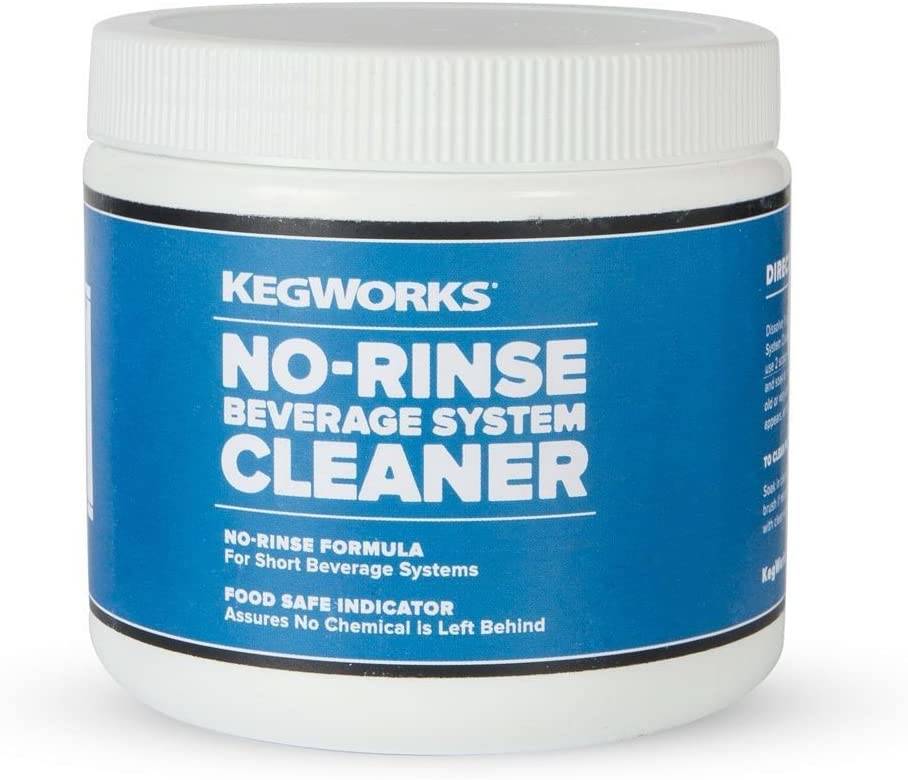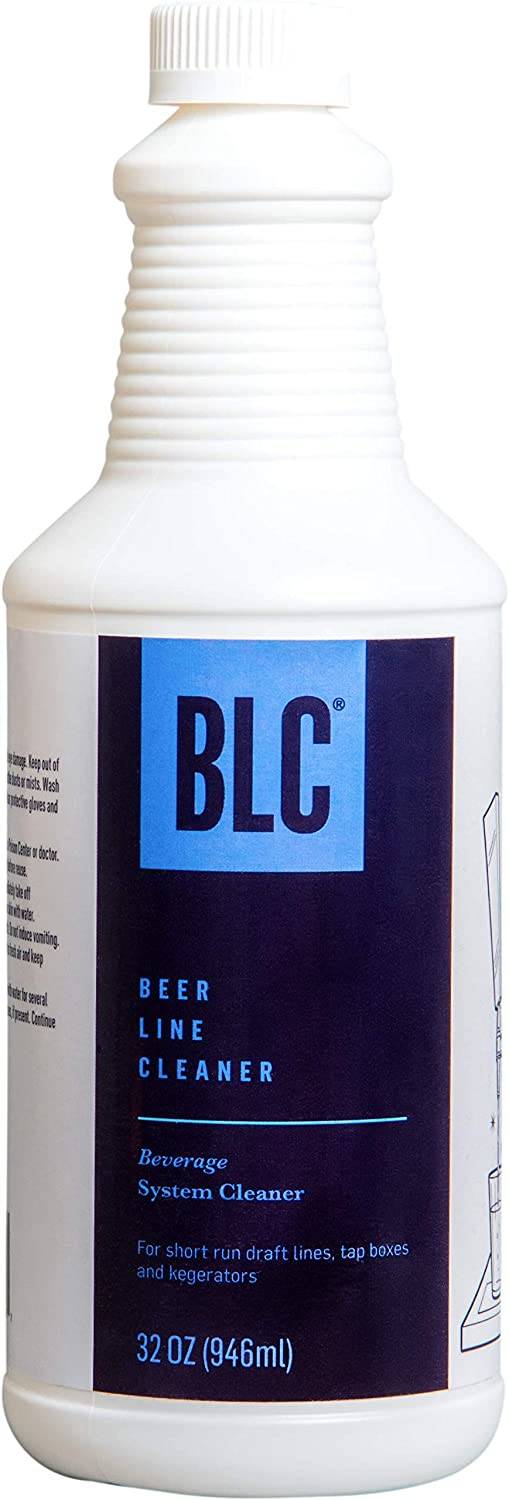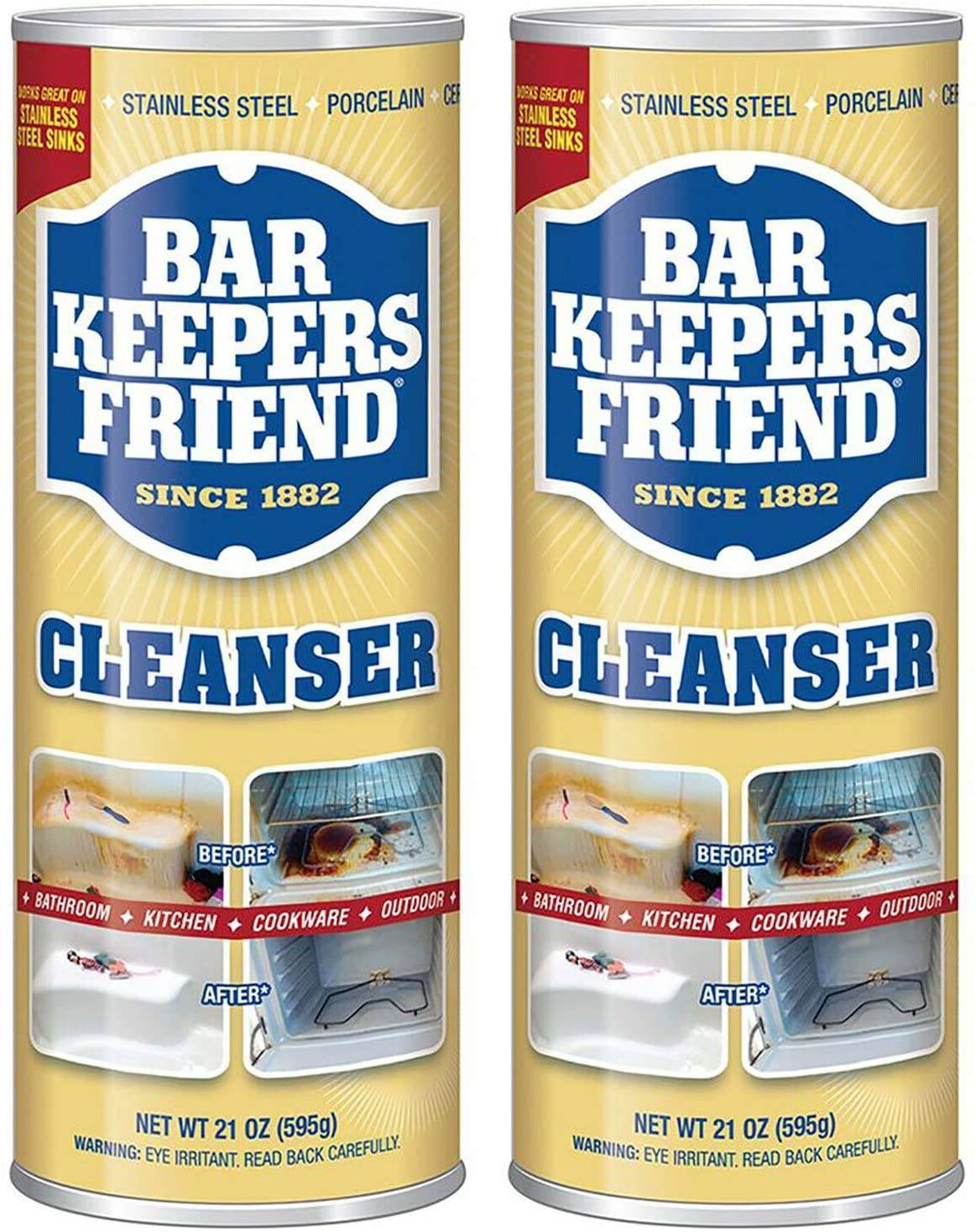Best Home Brewing Cleaning Supplies
There’s nothing like a good tall, chilled glass of beer after a hard day’s work. Do you know what makes it even better? When the beer is home brewed.
While home brewing is a favorite hobby for beer aficionados across the globe, many of them don’t realize that without proper care, their brew might be susceptible to molds, bacteria, and all kinds of yeasts lying in wait to spoil your hard work.
That’s why you need an excellent brewing sanitizer.
These cleaning supplies are easy to use and powerful enough to keep your favorite beverage free of contamination and also helps preserve the flavor.
That’s why you need to find the right cleaning supplies to eliminate the risks of fermentation buildup, chemical residue as well as microbial growth.
Read on to learn more about the top products used for cleaning homebrew equipment.
The Best Home brew Cleaners
Best Overall Homebrew Cleaner – Five Star Powdered Brewery Wash (PBW)
PBW is a buffered alkaline cleaner that is not only safe for use on metals, rubber, or plastic equipment but your skin as well. It makes our list as the best in class because it is very effective at removing tough and caked-on stains or residue.
For best results, soak the brewing equipment overnight in the cleaning solution and rinse the following morning without any scrubbing or scouring. This simple process alone should be testament to the effectiveness of this alkaline solution – you can use it to remove foul chemicals and protein residue from brew kettles, tank filters, and fermenters.
Moreover, the chelators in PBW make it just as useful for use with hard water. Additionally, it non-caustic and doesn’t require extra heat to clean the equipment.
All in all, PBW is an environmental-friendly product as it not only utilizes oxygen to penetrate the dust particles in the equipment, but it also eliminates the bacteria and chemicals in the wastewater.
Pros
- Bio-degradable
- Non-caustic
- Doesn’t damage soft rubbers, metals, and skin
- Removes difficult residues
- Cleans industrial level copper, brass and aluminum equipment
Cons
- Expensive
- May leave a slippery residue
Best No-Rinse Cleaner – Kegworks No-Rinse Beverage System Cleaner
KegWorks is a powder cleaner that eliminates the risk associated with rinsing. It is formulated with 100% active ingredients that contribute to its effectiveness as a strong and active cleaning agent.
This cleaner also has a food-grade colored dye so you won’t ever confuse cleaned equipment with other gear that’s in the process of cleaning.
This combination of the colored dye and no-rinse system saves time that you’d otherwise be spending in pumping water through the brewing system. All you need to do is circulate the no-rinse cleaner through the equipment, tap you keg back to it and watch your beer pour out nice and clean.
Other low-quality cleaners that promise to be no-rinse may leave behind trace chemicals that can ruin your beverage, but that’s never going to happen with Kegworks.
You only need to use 1 scoop or ½ oz. of KegWorks in one-quart of water to clean home brewing equipment.
Pros
- 100% active cleaning agents
- Hassle-free beer line cleaner
- Food grade blue-colored dye for tracing the cleaning powder’s particles
- Non-caustic ingredients
- Saves time and energy
Cons
- Used with the no-rinse cleaning kit
Best Keg Beer Line Cleaner – BLC Keg Beer Line Cleaner For Kegerators
BLC is a powerful liquid beer line cleaner that leaves the tubes and valves of your beverage systems nice and clean. It is formulated to remove beer stones, microbial mass, or mineral deposits in the beverage lines to ensure that you get an uninterrupted supply of beer on-demand.
This liquid beer line cleaner is mainly composed of potassium hydroxide, which is an alkaline compound that does not corrode metal parts in the brewing system. Also included are a combination of surfactants and chelators that penetrate organic waste and dissolve them.
If you do not clean the beer lines, there’s a high chance of molds and yeast getting deposited in the lines. This might lead to beer stones that can clog these lines and create the perfect environment for micro-organisms to grow. This will spoil your entire keg and doom the whole brewery system.
So, make a solution of BLC by mixing 1 oz. of it in a gallon of warm water and pump it down the beer lines. After 15 minutes, BLC will dissolve away beer stones or any other gunk present in the lines. After that, rinse the beer line with clean water to wash down the BLC infused liquid remains.
Moreover, you can also use this solution to clean the valves and faucets by soaking them in it for some time and rinsing afterward.
Pros
- 100% biodegradable
- Nitrate free with low traces of phosphate
- Cleans nooks and crannies of a brewing line
- Works with electrical and mechanical cleaning units
- Cost-efficient
Cons
- No coloring dye to detect the solution residue
Best Stainless Steel Brewing Equipment Cleaner – Bar Keepers Friend Powdered Cleanser
Bar Keeper’s Friend cleanser is a powerful cleaning agent that works perfectly on equipment made of stainless steel. It also doesn’t contain any abrasive or caustic compounds that might harm the equipment or your skin in any way.
Oxalic acid is the main ingredient in here, and despite being a natural compound, it is quite effective at removing rust stains, and it also works effectively against lime deposits. You can use it clean kegs, pots, kettles, or any other stainless steel brewing equipment that needs cleaning.
Not only this, but it can also clean fiberglass, porcelain, ceramic, copper, and brass equipment just as well.
All you need to do is wet the surface that needs cleaning, and then sprinkle some of the powder on it. Wait a few minutes, and then wipe the powder away with a wet cloth or sponge.
Not only can it remove rust stains from the beer kegs and kettles, but it can also do away with hard water stains from equipment, keeping it spot-free and shiny. It’s wise to keep always keep a bottle of Bar Keeper’s Friend Cleanser at hand.
Pros
- Multi-purpose cleaner
- Gentle formula
- Removes rust, hard water stains, and lime deposits
- Removes tarnish from brass and copper
- Does not contain bleach
Cons
- Eye irritant
- Dangerous if inhaled
Cleaning Vs. Sanitation
Most people use these terms interchangeably, but in reality, these are two very different concepts. Cleaning includes removing dirt, debris, and residue from brewing equipment. On the other hand, sanitizing kills the bacteria or microbial organisms in the equipment.
Now, you can easily wash and scrub the brewing equipment to clean it. Still, sometimes the utensils get exposed to dirt, soil, or organic deposits that can only be removed with powerful cleaning agents.
It is also important to understand that many parts of the brewing equipment are invisible to the eye and require proper cleaning. Only dedicated cleaning agents let you can reach those areas and rinse them free of gunk and grime.
Similarly, sanitizers kill the microbial growth that can potentially affect the taste and even shelf life of the beer. Sanitization usually happens after the cleaning process, as it can be hard to sanitize equipment that has residue or dirt on it.
Also, if the dirt or other deposits dry and get stuck in the equipment, it becomes impossible to disinfect the equipment thoroughly since the sanitizers won’t be able to penetrate down to the surface, which then becomes the breeding ground of microbes.
Sanitization can also help neutralize the alkalinity of chemical cleaning agents used during the cleaning process so that they do not end up in your beer later on.
Different Types Of Cleaning Agents Used For Home Brewing Equipment
Cleaning home brewing equipment takes a lot more than just brushing, scrubbing or scouring, you need cleaning products to break the deposited matter or beer stones stuck inside corners and crevasses of brewing equipment that cannot be seen and then you also need disinfectants to ensure a thorough clean.
The following are some cleaning products used during the process of washing, cleaning, and disinfecting the home brewing system.
Bleach Products
These are usually dissolved in cold water to form a caustic solution that’s powerful enough to permeate later of dirt, gunk, and organic deposits to remove them. Since bleach is made up of chlorides and hypochlorite, it also has some bactericidal qualities.
The only downside to this cleaning agent is the fact that it can corrode away at metals, especially copper and brass, and it isn’t kind to the skin either.
While cleaning with bleach, be vigilant about not leaving the equipment in contact with it for a long time. And rinse everything with water to remove the bleach residue.
Percarbonate Based Cleansers
Percarbonate cleansers consist of hydrogen peroxide, which is a useful cleaning compound used for all types of brewing equipment. These cleaners are very effective at cleaning home brewing equipment as they are non-caustic and do not corrode metals, like copper and aluminum, that other alkaline solutions often do.
Several percarbonate based cleansers are also rendered safe by the FDA and can be used as cleaners in food-manufacturing industries.
Acetic Acid
Acetic acid is a strong cleaner, mostly used to clean copper-made brewing gear. When copper gets rusty due to oxidation, the oxides can enter your beer and alter its taste.
Acetic acid can clean copper tubing – but make sure to rinse it properly afterward. Cleaning copper equipment after each use can also prevent the buildup of bacteria.
Moreover, acetic acid is proven effective for cleaning brass equipment. Combining acetic acid with hydrogen peroxide will remove rust from brass tools after they are soaked in the solution for 15 minutes.
Detergents
Detergents often contain strong fragrances that can remain behind in the brewing system and mess up the taste and aroma of your beverage. It is also a common complaint that they can’t be rinsed off easily, and often leave behind a foamy residue or a slippery film behind can affect the taste of the beer.
However, if using detergents is your only option, make sure you buy phosphate-based detergents that leave no foam behind. The trouble is that they are not environment-friendly, which is why brewers are not encouraged to use them.
How To Clean And Sanitize Your Home Brewing Equipment?
Clean your equipment after each round of brewing.
First, you either soak everything in an effective cleaning agent to get the dirt and grime off. In the case of tubes and valves, the cleaning agents are dissolved in water and pushed inside to dissolve beer stones and clean out any other organic deposits or mold growth.
Next, rinse the brewing equipment to get rid of any traces of cleaning agents that may have been left behind. Then it’s time to sanitize the equipment –you need to use a good sanitizing agent to either soak the items or spray.
Rinse the equipment with clean water one last time, and then you are ready to use the brewing system again.
FAQs
How can you determine the effectiveness of your brewing equipment cleaning process?
The effectiveness of your cleaning process can be determined by three variables: time, temperature, and concentration.
You need to maintain the optimal temperature of the cleaning solution as well as a well-lit location with an appropriate temperature to ensure a successful cleaning process. Also, make sure you give it enough time for the cleaning solution to work properly. Specific equipment, such as fermenters, requires more time as they are highly prone to yeast and mold growths.
Moreover, the concentration of the cleaning agent must be moderate as too much will become caustic and too low won’t be effective at cleaning.
How often do I need to clean the beer lines?
If the beer lines are used regularly, you need to clean them after every two weeks. But it is even better to clean and sanitize your beer lines after each keg replacement.




